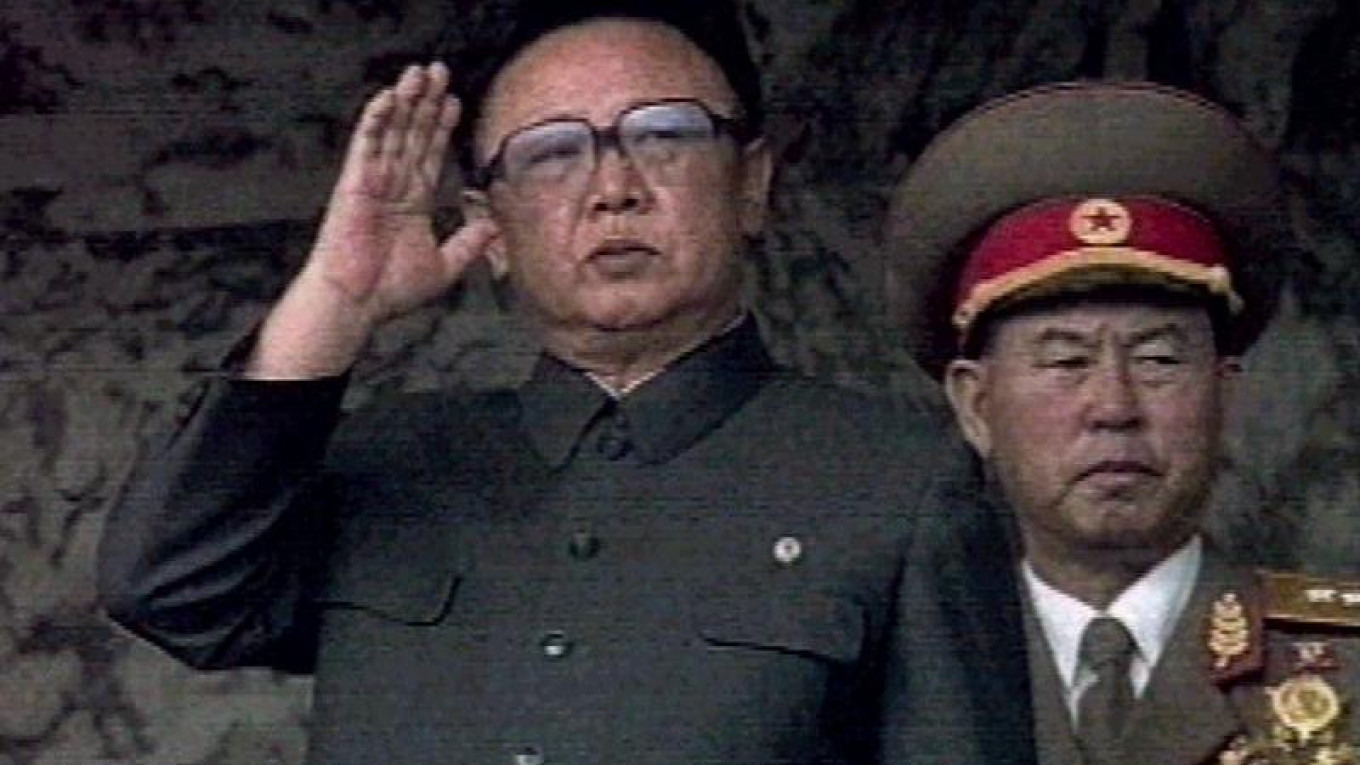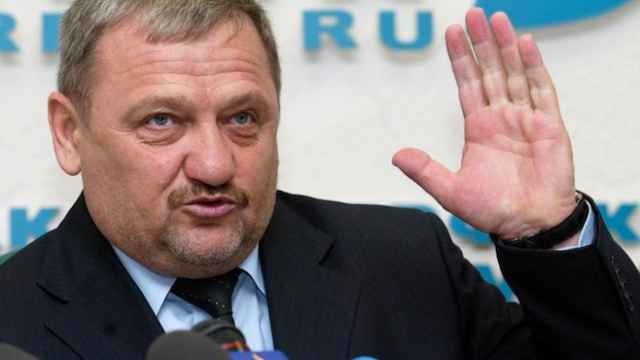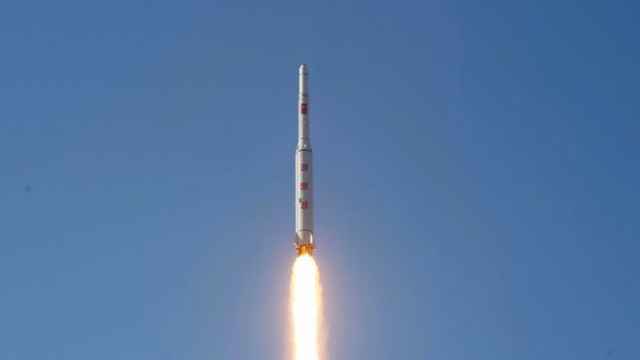A memorial plaque honoring North Korea's former leader Kim Jong Il was unveiled during an opening ceremony on Thursday in St. Petersburg, the Interfax news agency reported Friday.
The plaque was installed in the city’s Kirov factory to mark the 15th anniversary of Kim-Jong-Il’s visit to Russia. "When the North Korean embassy contacted us and asked to install the memorial, we decided to fulfill the request," factory representatives said.
"Chairman of the North Korean National Defense Commission Kim Jong Il visited the Kirov Plant on Aug. 7, 2001," reads the plaque, which may be seen as a symbol of a closer relationship between the two countries, as Russia has turned its diplomatic attention eastward over growing tensions with the West.
It is not the first time that St. Petersburg’s citizens have faced decisions by the city administration to perpetuate the memory of those with no obvious ties to the northern capital.
Just two months ago, Russian Culture Minister Vladimir Medinsky delivered a speech during the opening ceremony of a memorial plaque for Carl Gustav Mannerheim — a Finnish military leader allegedly linked to Adolf Hitler.
Mannerheim’s regiment is believed to have contributed to the siege of Leningrad, which caused many questions about the memorial’s relevance.
In May, the city authorities announced that one of the city bridges will be named after deceased Chechen leader Akhmad Kadyrov, despite discontent that the idea sparked within and outside St. Petersburg. An online petition claiming that Kadyrov had nothing to do with the city gained about 90,000 signatures, but the city authorities did not revoke the decision.
A Message from The Moscow Times:
Dear readers,
We are facing unprecedented challenges. Russia's Prosecutor General's Office has designated The Moscow Times as an "undesirable" organization, criminalizing our work and putting our staff at risk of prosecution. This follows our earlier unjust labeling as a "foreign agent."
These actions are direct attempts to silence independent journalism in Russia. The authorities claim our work "discredits the decisions of the Russian leadership." We see things differently: we strive to provide accurate, unbiased reporting on Russia.
We, the journalists of The Moscow Times, refuse to be silenced. But to continue our work, we need your help.
Your support, no matter how small, makes a world of difference. If you can, please support us monthly starting from just $2. It's quick to set up, and every contribution makes a significant impact.
By supporting The Moscow Times, you're defending open, independent journalism in the face of repression. Thank you for standing with us.
Remind me later.






